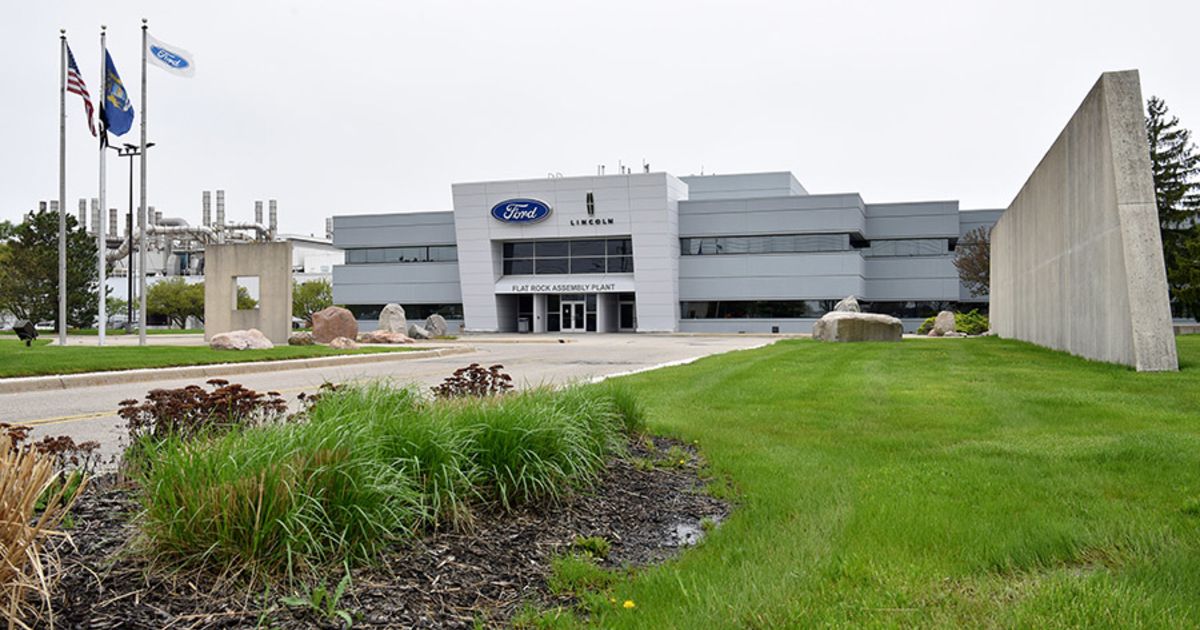
Ford Motor Co. said it will invest $3.7 billion and create 6,200 UAW jobs across manufacturing hubs in three Midwest states as it looks to increase production of both internal combustion and electric vehicles.
The majority of the investment — $2 billion supporting 3,200 new jobs — will come in Michigan at Ford’s Flat Rock Assembly Plant, Rouge Electric Vehicle Center, Michigan Assembly Plant, nearby parts factories and a new packaging facility coming to Monroe.
Ford said Thursday the investments would go toward producing the next-generation Mustang coupe at Flat Rock Assembly and the next-generation Ranger midsize pickup at Michigan Assembly, and boosting F-150 Lightning output at the Rouge Electric Vehicle Center to 150,000 pickups per year. Ford set Lightning production goals in January but until now had not announced any additional jobs or investments related to that planned production increase.
Ford also plans to spend $1.5 billion and create 1,800 jobs at its Ohio Assembly Plant in Avon Lake to expand the operation for production of a commercial EV that will launch mid-decade. It will add 90 jobs and a $100 million investment between its Lima Engine and Sharonville Transmission plants, also in Ohio.
It is investing $95 million and creating 1,100 jobs at a Kansas City assembly plant in Missouri, adding a third shift to boost production of both the gasoline-powered Transit van and the battery-powered E-Transit van. The automaker declined to say by how much Transit or E-Transit output would be increased by the addition of a shift.
Separately, Ford said it plans to transition an additional 3,000 temporary UAW workers into full-time status ahead of a schedule negotiated in its current labor contract with the union.
Ford further plans to invest $1 billion over five years across all facilities in the U.S. to “improve the workplace environment” with initiatives such as more healthy foods, better security and dedicated EV charging stations in plant parking lots.
Ford said the newly transitioned full-time union workers would receive full health care benefits on day one, a change from how the union’s contract is currently structured.
“Ford is America’s No. 1 employer of hourly autoworkers, and this investment only deepens our commitment to building great new vehicles — from an all-new Mustang to new EVs — right here in the U.S. in partnership with the UAW,” Bill Ford, executive chair of Ford, said in a statement. “I am proud that we are investing in the Midwest and taking real action to provide better benefits and working conditions for our workers on the plant floor.”
Such large-scale investment plans and product commitments are typically used as leverage and timed to contract negotiations between automakers and the UAW, although the next talks are still more than a year away.
“This shows we’re moving fast,” Kumar Galhotra, president of the Ford Blue division, told Automotive News. “We’re not waiting for negotiations; we’re doing what’s right, first and foremost, for our employees … and we’re doing what’s right for our business.”
Galhotra declined to say what type of EV will be produced at Ohio Assembly, but he said it would support the company’s Ford Pro commercial business.
“This announcement is a testament to UAW members who contribute their skill, experience and knowledge to the success of Ford Motor Company,” UAW President Ray Curry said in a statement. “We are always advocating to employers and legislators that union jobs are worth the investment. Ford stepped up to the plate by adding these jobs and converting 3,000 UAW members to permanent, full-time status with benefits.”
The Ohio investment provides long sought-after job security for a union that a little over a year ago publicly lambasted Ford for moving planned production of a pair of upcoming electric crossovers from Ohio Assembly to Mexico. At the time, UAW leaders wrote a letter decrying Ford’s “corporate greed,” even as the automaker promised to continue investing in the plant.
Ford has set a goal of building 2 million EVs globally per year by the end of 2026. The company is splitting its core automotive business into dedicated divisions for internal combustion and electric vehicles while continuing to invest in both types of products.
Roughly $2.3 billion of the latest $3.7 billion outlay will support EVs, and $1.4 billion is earmarked for internal combustion products, according to a Ford spokesman, although the $2.3 billion for EVs is already included in a $50 billion investment Ford announced March 2.